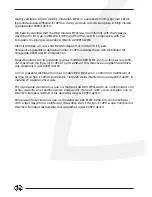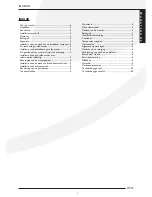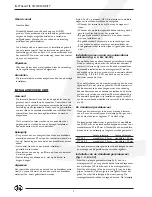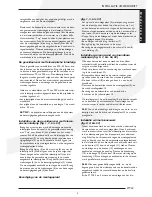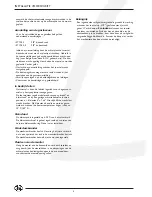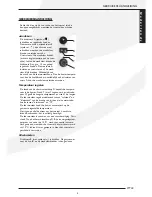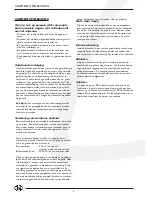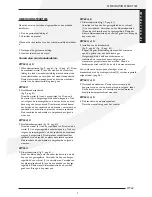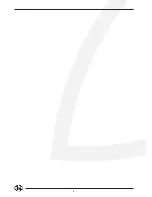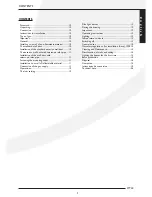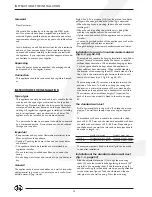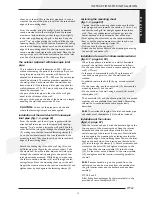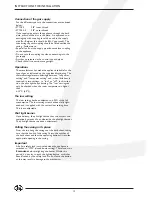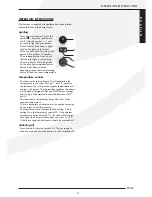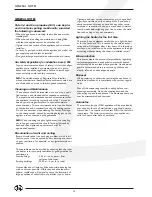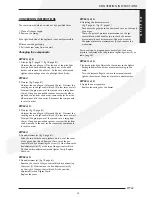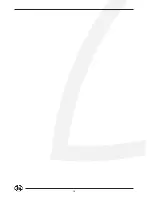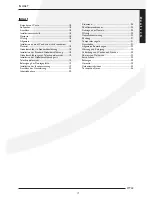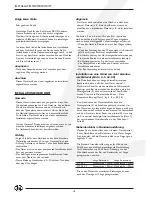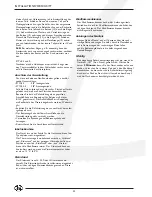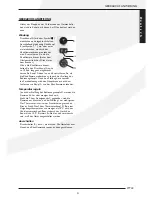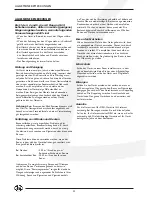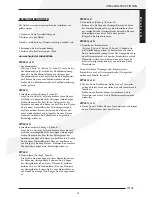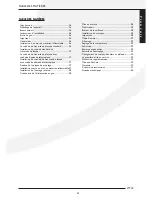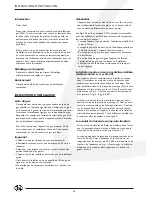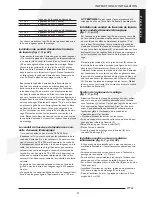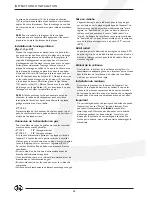
General notes
Style 3,4 and 5 on propane (G31) can be pla-
ced in vehicles pulling mobile units, provided
the following is observed:
• When the appliance is working, the mobile unit must be
standing still;
• When the vehicle pulling the mobile unit is being filled
with fuel, the appliance must be switched off;
• If glass is broken, switch off the appliance and contact an
installer;
• In case of a gas leak, switch off the appliance as well as the
gas supply tap and contact an installer;
• Flue gas discharge must remain unobstructed at all times.
Gas Safety Regulations (for installation & use) 1998
In your own interest and that of safety, it is law that all gas
appliances are installed by competent persons in accor-
dance with the above regulations. Failure to install appli-
ances correctly could lead to prosecution.
NB: The Confederation of Registered Gas Installers,
whose members are identified by the emblem shown here,
are all required to work to the recognised standards.
Cleaning and Maintenance
The appliance should be inspected once a year by a quali-
fied company, and cleaned and/or repaired as necessary.
The inspection and maintenance must at least ensure that
the appliance is working correctly and safely. This can be
done by your own gasinstaller or a specialised mainte-
nance company. You are recommended to free the heater
of dust before and occasionally during the heating season.
Do not use abrasives when cleaning the heater. Damage
to the casing varnish, caused by anything being put on the
appliance, is not covered by the guarantee.
NB: When replacing the pilot light burner, the coupling
nut in the gas control block should first be tightened by
hand and then tightened a quarter-turn with an
open-ended spanner.
Discoloration of walls and ceiling
Brown discoloration is an annoying problem, which is dif-
ficult to solve. It can be caused by dust burning as a result
of poor ventilation, for example, or by cigarette smoke or
candles.
These problems can be avoided by ensuring that the room
the heater is in is properly ventilated. A good guideline for
ventilation is:
New buildings
: 3.24 m
3
/ hour per m
2
floor
surface of the room.
Existing buildings
: 25.20 m
3
/ hour for a room.
Use candles and oil lamps as little as possible, keeping the
wick as short as possible. While they enhance the atmo-
sphere, candles and oil lamps also cause the formation of
large quantities of unhealthy soot particles in your home.
Cigarette and cigar smoke contains tar, which upon heat-
ing will precipitate on cold or damp walls. If you have a
newly cemented chimney or have had any other recon-
structions / renovations done, you are advised to wait at
least 6 weeks before lighting your fire, to allow the walls,
floor and ceiling to dry out completely.
Lighting the heater for the first time
There can be an unpleasant smell when you light the heat-
er for the first time. This is caused by the varnish evapo-
rating and will disappear after a few hours. We therefore
advise you, on initial use, to heat the appliance at the high-
est setting while ventilating the room it is installed in well.
Extra protection
This heater meets the normal safety standards regarding
surface temperatures, but physical contact with heated
surfaces should be avoided where possible. An additional
guard is recommended to protect young children and
elderly, infirmed or handicapped people.
Disposal
When replacing or otherwise removing the appliance, it
should be disposed of in compliance with current regula-
tions.
Shut off the connecting tap with coupling before com-
mencing disassembly. Undo the coupling between the
connecting tap and the appliance. The whole appliance can
now be disassembled and removed.
Guarantee
The warranty for your DRU appliance will be provided by
your supplier. In case of malfunctions, you should always
contact him. You supplier will contact DRU if he feels this
is necessary. The factory warranty for your appliance is
valid for 2 years after date of purchase.
GENERAL NOTES
14
Summary of Contents for Style 3
Page 10: ...8 ...
Page 18: ...16 ...
Page 26: ...24 ...
Page 34: ...32 ...
Page 42: ...40 ...
Page 50: ...48 ...
Page 59: ...57 fig 1 STYLE 3 fig 2 STYLE 3 fig 3 STYLE 4 5 fig 4 STYLE 4 5 STYLE ...
Page 60: ...58 fig 6 STYLE 3 fig 5 STYLE 3 ...
Page 61: ...59 STYLE fig 7 STYLE 4 5 fig 8 STYLE 4 5 ...
Page 63: ...61 STYLE fig 10 2 1 3 4 5 6 7 7 6 5 4 3 2 1 3 711 7 2 4 5 6 1 3 38c 927 fig 9 ...
Page 64: ......

